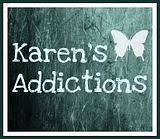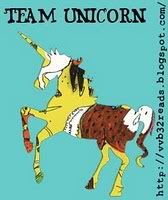Three years ago, Sophie Mercer discovered that she was a witch. It's gotten her into a few scrapes. Her non-gifted mother has been as supportive as possible, consulting Sophie's estranged father--an elusive European warlock--only when necessary. But when Sophie attracts too much human attention for a prom-night spell gone horribly wrong, it's her dad who decides her punishment: exile to Hex Hall, an isolated reform school for wayward Prodigium, a.k.a. witches, faeries, and shapeshifters.
By the end of her first day among fellow freak-teens, Sophie has quite a scorecard: three powerful enemies who look like supermodels, a futile crush on a gorgeous warlock, a creepy tagalong ghost, and a new roommate who happens to be the most hated person and only vampire student on campus. Worse, Sophie soon learns that a mysterious predator has been attacking students, and her only friend is the number-one suspect.
As a series of blood-curdling mysteries starts to converge, Sophie prepares for the biggest threat of all: an ancient secret society determined to destroy all Prodigium, especially her.
Hex Hall by Rachel Hawkins has been on my shelf for way too long. I bought it when it came out, and I got it signed when I met Rachel, who (btw) is really funny. I'm so glad I have all three books on my shelf though because now I don't have to wait to read Demonglass.
I loved this book so much. Gush, gush, gush... sorry. I can't help it. I'm practically kicking myself that I didn't pick it up sooner. It was such a fun book. Hex Hall was somewhat inspired by the British show, Hex, which I LOVE! And I'm drawn to anything and everything witchy.
Sophie is such a fun character, and she's very easy to relate to. Despite being a witch, she's still very human, making mistakes and going through the troubles that come with being a teen. Getting into trouble, being sent to a school for delinquents by her non-existent father, starting off at that school on the wrong foot. Poor Sophie. But at the same time it's hilarious to watch all that she goes through, and you'll want to root for her.
My only complaint is the way "bad language" was handled. Basically, there is a sentence of dialogue which contains a mildly inappropriate word like "shit" and then the following sentence of internal dialogue goes something like "Well, I didn't say shit. What I said was much worse." I'm sure that's a thing with the editor and/or publisher (instead of the author), but it really annoys me when it comes up. Which, thankfully, isn't often. It pulls me right out of the story. I actually have to pause for a few minutes because it's that ridiculous. Teens curse. It happens everyday. There's no reason to dial down language, when there's only one instance of "bad language" in a book. And I really doubt the word Rachel Hawkins had originally put in there was that bad.
Aside from that one little complaint, this really is a fantastic book! I couldn't put it down. It's fast paced and tons of fun. If you haven't read it yet, you are so midsing out!
PS> I'm including the cover to the left because I find it kind of amusing. I guess this is how teen witches dress in Bulgaria. You certainly won't find this cover in the US on a YA book. Especially that girl in the middle.
Wednesday, March 20, 2013
Book Review: Hex Hall
Labels:
Demons,
Must-read,
Romance,
School,
UF,
Vampires,
Werewolves,
Witches,
YA
Posted by
Name: Aine
0
comments

Sunday, March 3, 2013
Guest Post: Marie Brennan
Today on the blog, I have Marie Brennan, author of A Natural History of Dragons which you may have seen hit the shelves about a month ago.
Sometimes you have to fiddle around with a book before it starts working, before you find the right approach to the story, the right voice for the narrator.
In this instance, it took all of about three sentences.
I knew, when I started writing A Natural History of Dragons that it was going to be a Victorian-style memoir. When I started writing, I immediately discovered the delights of that approach. My protagonist is, especially in this first book, a headstrong and slightly naive young woman -- but the woman who is telling the story is decades older. The result is the best of both worlds: I get to play with her youthful enthusiasm and foolishness, but also the perspective and bulletproof audacity that comes with age. Older women in many times and places have been allowed leeway not given to their younger selves, and Isabella is exploiting that to the fullest.
It’s also fun to play around with the explicit framing the memoir format provides. I’ve written first-person stories before that are less strictly constructed, stories where you’re in the protagonist’s head, but she isn’t telling her story from a defined point in time, or to a defined audience. This approach loses a degree of flexibility, but provides a whole array of games to play. Isabella can distinguish between the young woman she was then and the old woman she is now, reflect on changes in her world, and tell the reader outright what she is and is not willing to talk about. It still has its implausible conventions, of course; when she reports a conversation word-for-word, what exactly is she basing that on? She kept a diary, of course, as many people in that time period did, but a great deal of what she says must be invention or after-the-fact reconstruction. But all fiction has such artificialities, regardless of the approach. What’s different in this instance is that I’ve never tried the memoir format at a length longer than a short story.
For all the challenges (and believe me, there are challenges, especially when it comes to the things Isabella doesn’t want to talk about), I’m having a blast, and have been since those first three sentences. Her voice clicked instantaneously -- a shameless old woman talking about her youthful stupidity -- and my brain is constantly supplying me with entertaining little asides, or wry commentary on the characters and events. In fact, the only downside to that part is figuring out when to rein Isabella in!
I’m two books into the series at this point, and it’s still as fun as when I started. In my line of work, we call that a win.
Marie Brennan is a former academic with a background in archaeology, anthropology, and folklore, which she now puts to rather cockeyed use in writing fantasy. She lives in the San Francisco Bay Area. In addition to many short stories and novellas, she is also the author of A Star Shall Fall and With Fate Conspire (both from Tor Books), as well as Warrior, Witch, Midnight Never Come, In Ashes Lie, and Lies and Prophecy. You can find her online at SwanTower.com.
Sometimes you have to fiddle around with a book before it starts working, before you find the right approach to the story, the right voice for the narrator.
In this instance, it took all of about three sentences.
I knew, when I started writing A Natural History of Dragons that it was going to be a Victorian-style memoir. When I started writing, I immediately discovered the delights of that approach. My protagonist is, especially in this first book, a headstrong and slightly naive young woman -- but the woman who is telling the story is decades older. The result is the best of both worlds: I get to play with her youthful enthusiasm and foolishness, but also the perspective and bulletproof audacity that comes with age. Older women in many times and places have been allowed leeway not given to their younger selves, and Isabella is exploiting that to the fullest.
It’s also fun to play around with the explicit framing the memoir format provides. I’ve written first-person stories before that are less strictly constructed, stories where you’re in the protagonist’s head, but she isn’t telling her story from a defined point in time, or to a defined audience. This approach loses a degree of flexibility, but provides a whole array of games to play. Isabella can distinguish between the young woman she was then and the old woman she is now, reflect on changes in her world, and tell the reader outright what she is and is not willing to talk about. It still has its implausible conventions, of course; when she reports a conversation word-for-word, what exactly is she basing that on? She kept a diary, of course, as many people in that time period did, but a great deal of what she says must be invention or after-the-fact reconstruction. But all fiction has such artificialities, regardless of the approach. What’s different in this instance is that I’ve never tried the memoir format at a length longer than a short story.
For all the challenges (and believe me, there are challenges, especially when it comes to the things Isabella doesn’t want to talk about), I’m having a blast, and have been since those first three sentences. Her voice clicked instantaneously -- a shameless old woman talking about her youthful stupidity -- and my brain is constantly supplying me with entertaining little asides, or wry commentary on the characters and events. In fact, the only downside to that part is figuring out when to rein Isabella in!
I’m two books into the series at this point, and it’s still as fun as when I started. In my line of work, we call that a win.
Marie Brennan is a former academic with a background in archaeology, anthropology, and folklore, which she now puts to rather cockeyed use in writing fantasy. She lives in the San Francisco Bay Area. In addition to many short stories and novellas, she is also the author of A Star Shall Fall and With Fate Conspire (both from Tor Books), as well as Warrior, Witch, Midnight Never Come, In Ashes Lie, and Lies and Prophecy. You can find her online at SwanTower.com.
Subscribe to:
Comments (Atom)








































